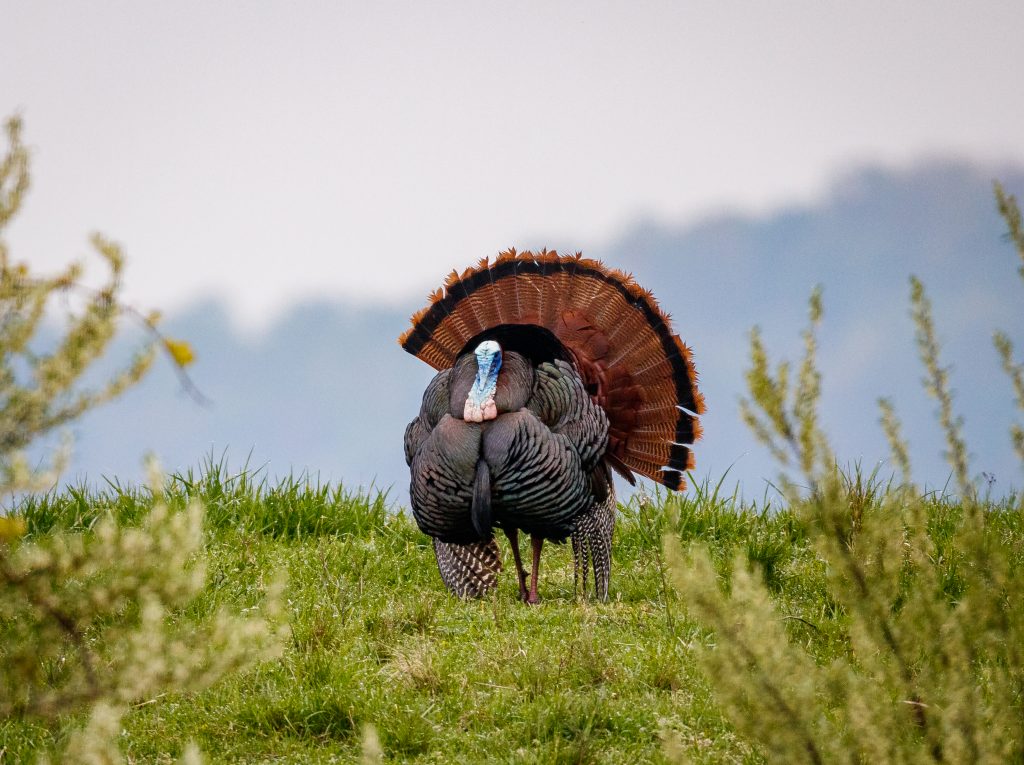Looking Ahead to the 2023 Farm Bill
Work begins to structure America’s farm bill; plus, the Recovering America’s Wildlife Act moves forward.
The mission of the NWTF is no less urgent today than when it was founded in 1973. What we do on the land in the coming decades will be instrumental in enhancing wild turkey populations and the continuation of hunting and quality wildlife habitat for countless species.
Since 1985 (the year the Super Fund was started), NWTF volunteers and partners have raised and invested nearly half a billion dollars toward our mission of conserving wildlife habitat and preserving our hunting heritage. Delivering our mission while enhancing water quality, forest and grassland health, and community safety against wildlife requires public, private and nonprofit partners with a common, landscape-scale vision for success.
The farm bill brings the private landowner — generational family farmers and forest owners, nongovernmental organizations, commercial operations and American families — to the table. Its programs provide the structure by which these conservation objectives are met by providing incentives and cost-share opportunities for habitat improvement activities. Additionally, the USDA delivers crucial technical assistance to private landowners to help them implement this work.

The NWTF is an invested implementer and administrator of a number of farm bill programs. These programs include the Environmental Quality Incentives Program, Conservation Reserve Program, Regional Conservation Partnership Program and Stewardship Contracting, among others.
Private landholdings make up more than 60% of the 2.3 billion acres of landmass in the United States. In the Eastern U.S., private lands far exceed public lands and, therefore, are crucial to the success of large-scale conservation objectives. In the West, the reverse is true, with public landholdings making up 50% or more of the land in many states.
Delivering conservation on private lands — in partnership with private landowners — is fundamental to the success of landscape-scale, cross-boundary habitat, forestry and climate-driven conservation efforts, including the USDA Forest Service’s recently announced 10-Year Wildfire Crisis Strategy.
The NWTF and the Natural Resources Conservation Service are working together to help improve forest and habitat health and resiliency on private lands and manage the forestry-related workload derived from the farm bill. As part of the National Forestry Initiative agreement, the NWTF is positioned to help improve an estimated 350,000 acres of private land throughout the country by providing experienced forestry professionals to bolster NRCS staff in 24 states over a five-year period. To date, NFI has affected over 280,000 acres.
Through our partnership with the Forest Service, the NWTF has become the largest and longest-tenured organization involved in stewardship agreements across the agency. The authority for the Forest Service and the Bureau of Land Management to enter into these agreements comes from the farm bill. Work includes: ecosystem restoration/rehabilitation, sustainable forest management, watershed enhancement, wildlife habitat improvement — including threatened and endangered species — community protection from wildfires, fuels reduction and recreation.
About 40 stewardship agreements are ongoing across national forests and grasslands each year with more than 150 completed to date. Many of these agreements are long term and occur over 10 years. To put this partnership into perspective, in 2019, the NWTF was ranked No. 4 nationally on the list of purchasers of timber sold from National Forest System lands, and we are regularly in the top 10. All of this was derived through stewardship agreements.
None of this vital conservation work could occur without the authorities and incentive programs established in the farm bill, most recently renewed in 2018 and set to expire in fall 2023. The conservation and forestry titles are crucial to the NWTF’s mission delivery. This is why we actively engage in farm bill stakeholder coalitions, like the Forest in the Farm Bill Coalition. Coordination with partners and other stakeholders is underway as we formulate priorities for the upcoming 2023 Farm Bill.
America needs a strong farm bill for the future of our nation’s food security, water, wildlife and wild places, and the NWTF is working to make that happen.
Legislative Update and Outlook
The House of Representatives passed the Recovering America’s Wildlife Act in June, continuing a massive step forward for one of the most important pieces of legislation for wildlife in the last century. In the works for over 20 years, RAWA will direct $1.3 billion to states and tribes to fund Congressionally mandated State and Tribal Wildlife Action Plans. Funding will go to addressing species of greatest conservation need allowing states/ tribes to manage these species in the most effective manner before there’s a need for listing under the Endangered Species Act. The U.S. Senate must now advance its companion bill and resolve differences between the two versions before the act can be sent to the president’s desk for approval.
After a big push during the first half of the 2022 session of the 117th Congress, conservation-related activities slowed as Congress focused on appropriations and preparations for midterm elections. Some activities continue, but not at the pace as earlier in the session. In the weeks leading up to the summer recess, several forestry and wildfire-related bills will have hearings, including a potential solution for the 9th Circuit Cottonwood decision that is set to expire next year.
The NWTF is working closely with the Forest Service, the Bureau of Land Management and the U.S. Fish and Wildlife Service to help prioritize spending for conservation-related activities funded in the Bipartisan Infrastructure Law. NWTF is supporting appropriations to expedite the implementation of habitat, wildfire and watershed restoration work.
In addition to supporting RAWA, the NWTF is currently monitoring over 223 bills in both houses of Congress.
